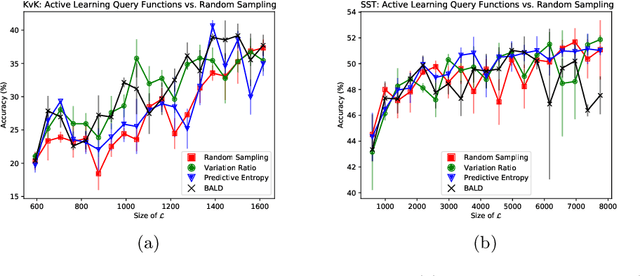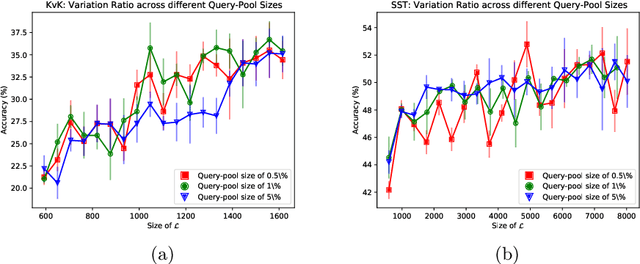Active learning for reducing labeling effort in text classification tasks
Paper and Code
Sep 10, 2021



Labeling data can be an expensive task as it is usually performed manually by domain experts. This is cumbersome for deep learning, as it is dependent on large labeled datasets. Active learning (AL) is a paradigm that aims to reduce labeling effort by only using the data which the used model deems most informative. Little research has been done on AL in a text classification setting and next to none has involved the more recent, state-of-the-art NLP models. Here, we present an empirical study that compares different uncertainty-based algorithms with BERT$_{base}$ as the used classifier. We evaluate the algorithms on two NLP classification datasets: Stanford Sentiment Treebank and KvK-Frontpages. Additionally, we explore heuristics that aim to solve presupposed problems of uncertainty-based AL; namely, that it is unscalable and that it is prone to selecting outliers. Furthermore, we explore the influence of the query-pool size on the performance of AL. Whereas it was found that the proposed heuristics for AL did not improve performance of AL; our results show that using uncertainty-based AL with BERT$_{base}$ outperforms random sampling of data. This difference in performance can decrease as the query-pool size gets larger.
 Add to Chrome
Add to Chrome Add to Firefox
Add to Firefox Add to Edge
Add to Edge